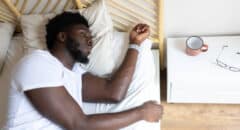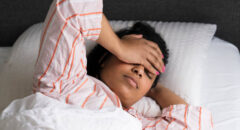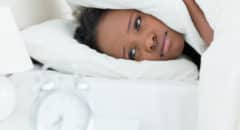
Are you one of the many adults struggling with insomnia? According to a study by the National Council on Aging, about 30 percent of adults experience symptoms of insomnia, with 10 percent reporting that it significantly impacts their daily activities. If you find yourself in this statistic, it might be time to consider some effective sleeping aids. Here are five sleeping aids to help combat insomnia.
1. Neuro Gum’s Sleep & Recharge Meltaway Mints
If you’re looking for a natural sleep aid to complement your bedtime routine, Neuro’s Sleep & Recharge meltaway mints are an excellent option. These mints are scientifically designed to help you achieve restful sleep and wake up feeling refreshed.
How Neuro Gum Works:
Neuro’s Sleep & Recharge meltaway mints are formulated with clinically tested melatonin and a proprietary blend of passion flower, chamomile, lemon balm, and elderberry. These ingredients work together to promote relaxation and sleep without the groggy side effects of traditional sleep aids.
Benefits of Neuro Gum:
- Fast-Acting: The mints dissolve quickly, ensuring rapid absorption of sleep-enhancing ingredients.
- Natural Ingredients: The blend of melatonin and calming herbs promotes relaxation and sleep.
- Non-Groggy Mornings: Unlike some sleep aids, Neuro’s mints help you wake up feeling refreshed and alert.
How to Use Neuro Gum:
Simply pop 1-2 mints in your mouth 20 minutes before bed. The fast-melt technology ensures they dissolve in 30 seconds or less without any bitter aftertaste, helping you drift into a peaceful sleep.
2. Melatonin Supplements
Melatonin is a hormone that your body naturally produces in response to darkness. It helps regulate your sleep-wake cycle. Taking melatonin supplements can be particularly helpful if you have trouble falling asleep or have a disrupted circadian rhythm due to jet lag or shift work.
Tips for Success:
- Start with a low dose (0.5 to 1 mg) about 30 minutes before bed.
- Increase the dose gradually if needed, but avoid high doses as they can cause side effects.
3. Herbal Teas
Herbal teas, such as chamomile, valerian root, and lavender, have been used for centuries to promote relaxation and improve sleep quality. These teas contain natural compounds that have a calming effect on the body and mind.
Tips for Success:
- Drink a cup of herbal tea 30 to 60 minutes before bed.
- Avoid adding sugar or caffeine-containing ingredients.
RELATED: More Than Sleepless: How To Tell If You Have Insomnia
4. Magnesium Supplements
Magnesium is an essential mineral that plays a role in numerous bodily functions, including muscle relaxation and the regulation of the nervous system. Low magnesium levels can contribute to insomnia and restless sleep.
Tips for Success:
- Take a magnesium supplement (200-400 mg) about an hour before bed.
- You can also increase your magnesium intake through foods like leafy greens, nuts, seeds, and whole grains.
5. Aromatherapy
Aromatherapy involves using essential oils to promote relaxation and improve sleep quality. Oils like lavender, chamomile, and sandalwood are particularly effective for sleep.
Tips for Success:
- Add a few drops of essential oil to a diffuser in your bedroom.
- Alternatively, you can add essential oils to a warm bath or apply them to your skin using a carrier oil.
When to See a Doctor
While these sleeping aids can be highly effective, it’s important to know when to seek professional help. If you’ve tried multiple strategies and still find yourself struggling with insomnia, it may be time to consult a doctor. Consider seeing a doctor if:
- Your insomnia persists for more than a few weeks.
- You experience significant daytime fatigue or mood disturbances.
- You have trouble concentrating or remembering things.
- You rely on sleep aids frequently to fall asleep.
- You suspect an underlying medical condition might be contributing to your insomnia.
Combatting insomnia requires a combination of good sleep hygiene practices and effective sleeping aids. Don’t let insomnia disrupt your life any longer—try these sleeping aids and take the steps needed to achieve restful, restorative sleep tonight. And remember, if your sleep problems persist, don’t hesitate to seek professional advice to address any underlying issues.









